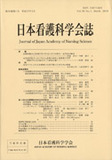Japanese
English
- 販売していません
- Abstract 文献概要
- 参考文献 Reference
- サイト内被引用 Cited by
要旨
本研究は,介護者の生活行動および日常生活の問題を被介護者の日常生活自立度別に分析し,介護者の生活の質を向上させるための支援方法を明らかにすることを目的として,介護者104名を対象に自記式質問票による調査を行った.日常生活自立度は,4ランクからなる厚生省「障害老人の日常生活自立度判定基準」*を用いた.結果は以下のとおりである.
1)介護者の睡眠時間および食事時間は一般住民より短く,そしてランク間の差は認められなかった.
2)運動・散歩時間がない介護者がランクCは約8割で,ランクAに比べて有意に多かった.
3)介護時間4時間以上の介護者がランクCは約8割で,ランクJ,A,Bより有意に多かった.また夜間介護のある介護者がランクB,Cは約7割で,ランクJ,Aより有意に多かった.
4)家を留守にできない,ストレス・精神的負担が大きいと感じている介護者がランクA,B,Cは約6~7割で,ランクJより有意に多かった.
この結果から,介護に関連する時間はランクB,Cの介護者に多いが,介護者の日常生活の問題はランクAもランクB,Cと違いが少ないことが示された.介護者が余暇時間を確保し,拘束感が軽減できるよう通所型のサービスを効果的に活用すること,また介護者が必要時に援助が得られるソーシャル・サポート・ネットワーク構築の必要性が示唆された.
*J:生活自立,A:準寝たきり,B:寝たきり(座位を保つ),C:寝たきり
Abstract
The purpose of this study was to analyze the daily activity and problems of caregivers of the frail elderly, grouping the caregivers by the level of independence in Activities of Daily Living (ADL) of the recipients of care, and to find a way of improving the quality of life of the caregivers. A written questionnaire was administered to 104 people caring for an elderly relative. The level of independence in ADL of the elderly relative was assessed by means of a standard proposed by the Ministry of Health and Welfare of Japan composed of 4 ranks*. The findings of this study were as follows:
1. The time caregivers spent on sleeping and eating was shorter than that of most other people, with no significant differences seen among the 4 ranks.
2. About 80 percent of the caregivers in Rank C spent no time doing exercise, a significantly greater percentage than in Rank A.
3. About 80 percent of the caregivers in Rank C spent over 4 hours per day in caregiving, a significantly greater percentage than in Ranks A, B and J. About 70 percent of the caregivers in Ranks B and C were involved in night care, a significantly greater percentage than in Ranks A and J.
4. The proportion of caregivers in Ranks A, B, and C feeling home-bound or experiencing mental strain was about 60 or 70 percent, significantly higher than in Rank J.
Although caregivers in Ranks B and C spent more time on activities related to caregiving than those in Ranks A and J, fewer differences were seen in the problems that caregivers experienced in daily life among Ranks A, B, and C. The option of utilizing in-home services should be available to caregivers to enable them to have some time for themselves and relieve their feeling of being psychologically restrained. It is important to develop a social support network that would enable caregivers to receive assistance from others when needed.
*J: self-supporting, A: semi bed-ridden, B: bed-ridden(able to sit), C: bed-ridden
Copyright © 2000, Japan Academy of Nursing Science. All rights reserved.


